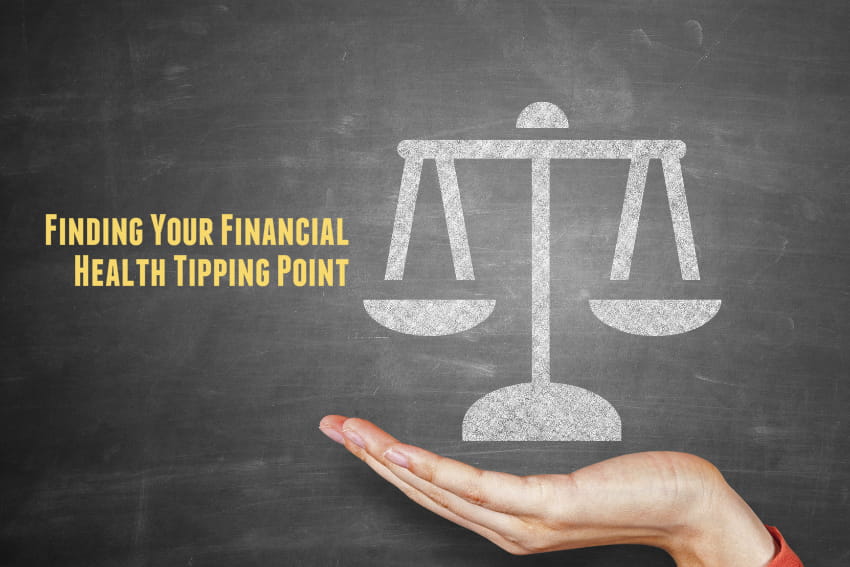Finding your financial health tipping point

Human beings have a startling tolerance for our own bad behavior. We do things we know we shouldn’t do – from overeating to overspending – because we let ourselves be guided by our feelings, and feelings can be deceptive.
That’s because we have a tendency to “forget” or push aside stronger, more resonant feelings that we know will come along later in favor of listening to our more immediate feelings. We listen to the voice that says, “I want ice cream, ice cream is delicious” because it’s closer and louder and maybe a bit more pleasant to hear than the voice that says, “I’m lactose-intolerant and also, I really want to lose five pounds.”
But why is “Ice cream is delicious” more resonant than “I want to lose five pounds”? And why is it so much easier to buy new clothes rather than put more money into your savings account?
Feelings aren’t feelings until you feel them
As an experiment, close your eyes and think about something that is both wonderful and unnecessary. Think about a treat. Chances are, when you think about this completely unnecessary, but totally enjoyable experience, you have an actual, physical reaction. Joy or excitement. A little surge of adrenaline, perhaps.
Now think about losing five pounds or saving $100. You probably don’t get quite the same feeling. You may even feel a very opposite sort of feeling – dread, anxiety, panic.
That’s because all you can see is the process. You’ve lost sight of the reasons why you might want to lose weight or save money or repaint your house, or whatever difficult thing you want to do, but can’t quite motivate yourself to begin. You can feel the effort, but you’re disconnected from the feelings associated with the outcome.
Good financial health isn’t simply about having money in the bank – it’s about the feelings of safety and security that money provides. It’s about freedom from constant financial anxiety and the ability to not have to think about money all the time.
Find your tipping point
For every action you can potentially take (or not take) there are feelings associated, both positive and negative, which help you decide what to do. The trick to finding the motivation necessary to continually do difficult, rewarding things like exercise or stick to a budget, is to always remember the feelings associated with the outcome, and not just the process.
Before you set a goal, sit down and create a list. The list should seek to answer two questions: “Why do I want to do this?” and “What will it feel like when I’m successful?”
Write down every possible answer that comes to mind. There’s no reason or feeling too small. Capture them all.
Your tipping point comes when those positive feelings and reasons so greatly outweigh the negative feelings that you can’t help but continue pushing forward on your goal. Of course, you’ll go to the gym. Not because you just want to lose five pounds, but because there are simply too many genuinely compelling reasons not to.
Becoming and remaining financially healthy isn’t easy. There are a lot of moving parts involved and sometimes the effort can feel overwhelming, especially if you’ve already fallen behind. That’s why it’s so crucial to find your financial health tipping point. Don’t try to motivate yourself with abstract ideas, like a better credit score or an adequate emergency savings account. Focus on what those things mean – what they can do for you. Focus on everything good about a life where you have those things.
It will always be work, but once you’ve found your tipping point, at least it won’t feel like you’re forever climbing uphill.
Interested in one-on-one guidance and advice? Consider speaking with one of our certified budget counselors today. They can help you review your spending and create a plan to make your financial goals a reality!
















